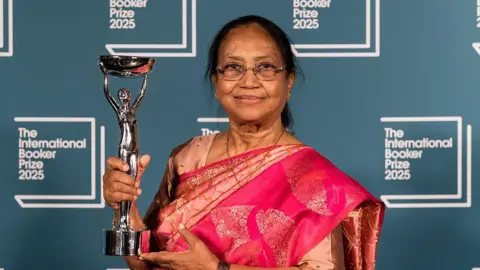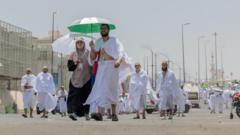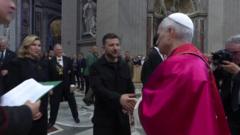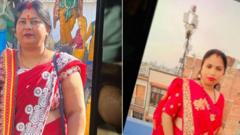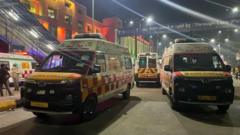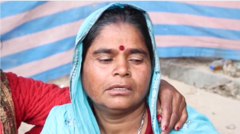As the sun rises over Prayagraj, India, thousands of pilgrims embark on their spiritual journeys at the Kumbh Mela, a massive Hindu festival occurring every three years. This year’s gathering, known as the Maha Kumbh due to a rare celestial event, attracts an unprecedented number of devotees, amplifying the challenge of navigating such a monumental crowd.
Among them was Draupadi Devi, who, before braving the waters for a sacred dip, entrusted her husband, Umesh Singh, with a small pouch containing her phone number—a precaution against the chaos of the Mela. However, even this small measure of safety failed to keep them connected in the sea of humanity. After emerging from the holy bath, Ms. Devi found herself lost, separated from her husband and without the pouch.
Facing panic and uncertainty, the 65-year-old made her way to the lost-and-found center, a pivotal service designed to help reunite pilgrims with loved ones amidst the flurry of activity surrounding the event. Volunteers at the center witness the emotional strains as families showcase photos, searching desperately for those who have gone missing in the melee of spiritual fervor and devotion.
The Kumbh Mela embodies not only religious fervor but also the practical needs of those partaking in this ritual. It serves as a reminder of the delicate balance between spiritual purification and the earthly challenges posed by such large gatherings. With each person lost, there are stories of connection and hope as the lost-and-found center acts as a beacon for those seeking solace and reunification in the midst of one of the world’s most significant religious festivals.


